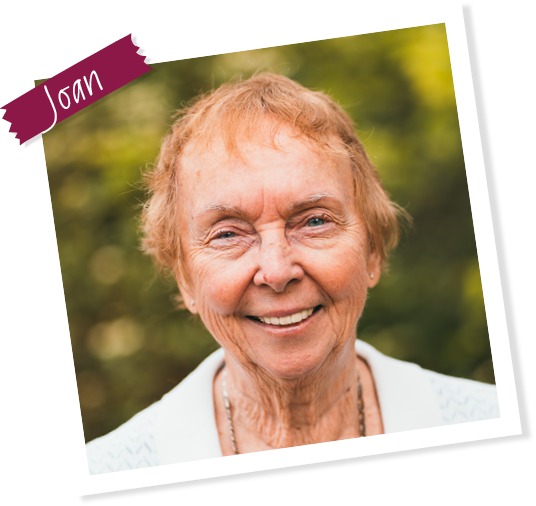Joan, caring for her husband
 My husband and I met when he was 81 and I was 75. Jim had been gassed with chlorine dioxide gas in an industrial accident 35 years before, resulting in COPD. He was still relatively active. We fell in love and were married. I was a retired nurse with 40 years’ experience and was very cognizant of Jim’s prognosis. Knowledge of and experience with, are very different. In the beginning we really did manage. My caregiving resembled what wives ordinarily do. I cooked and cleaned. Jim managed his medication regime. I was his companion as much as he was mine.
My husband and I met when he was 81 and I was 75. Jim had been gassed with chlorine dioxide gas in an industrial accident 35 years before, resulting in COPD. He was still relatively active. We fell in love and were married. I was a retired nurse with 40 years’ experience and was very cognizant of Jim’s prognosis. Knowledge of and experience with, are very different. In the beginning we really did manage. My caregiving resembled what wives ordinarily do. I cooked and cleaned. Jim managed his medication regime. I was his companion as much as he was mine.
As the disease progressed and he required oxygen 24/7, I began doing more. I began doing the driving. As his lung function declined, he had an increased frequency of “lung attacks”. His medication regime required 24/7 vigilance and was I ever vigilant of his breathing. I was always fearful of the next attack he would have. His breathing would stop, and the ambulance would take him to the hospital to use the nebulizer. These 911 calls to emergency care were common until 15 such calls in one year resulted in our doctor arranging for the nebulizer treatment to be given at home. Jim managed his twice-a-day treatments but during an attack, he was not able to manage independently. My presence was lifesaving.
Our need for 911 calls became less constant but I became constantly tired. Caregiving rather creeps up on you and one day, you are immersed in the role. On one of the 911 calls, the emergency room doctor recognized our need and referred us to Home Nursing Care. On the telephone screening call with the Home Care Nurse, referring to her assessment form – dressing, bathing, eating and so on – all areas in which Jim was independent, she announced we were not eligible. She never asked what made me think he needed home care. The checklist did not encapsulate the aroundthe- clock care that he needed and what I needed as a caregiver. It was over a year later before our need was acknowledged and Home Nursing Care began.
If I can offer some advice, it would be to seek knowledge of your strengths and weaknesses and ask for help based on them and speak up! Don’t take a checklist saying you are not in need of care as an answer.
Caregiving goes beyond the physical tasks. Emotional support and companionship were important parts of the care he needed. I never forgot to be his wife, but I became increasingly tired and emotionally and physically drained from caregiving. I became unable to handle the 24/7 care, the ongoing worry of attacks and the day-to-day tasks. Our doctor arranged for Jim to access hospice respite care every 6 weeks. This helped us to carry on. It was during one of these respite visits that Jim had a severe attack and I was called at 0230 in the morning in the night before he was to return home. He had had a severe attack and they had him stabilized but I needed to come. He survived the episode, but it was evident he would not return home and passed away a week later.
Jim and I had only six years together, but they were very meaningful and provided us with a lot of joy. The gratitude I felt for meeting Jim and spending the remaining years of his life with him has made it all worth it. I would do it all over again with and for Jim. He enriched my life.
